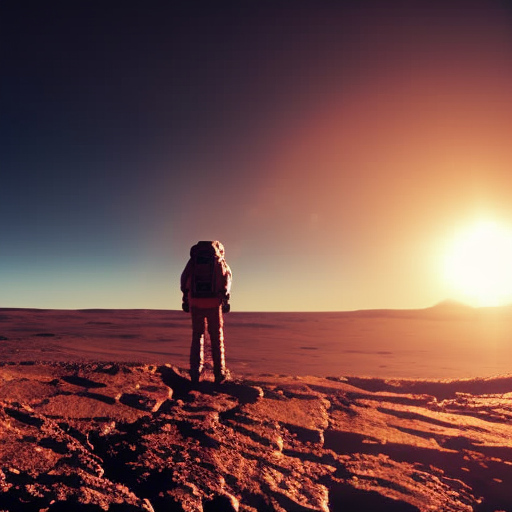Summary:
Space colonization refers to the concept of establishing permanent human settlements beyond Earth, primarily on other celestial bodies such as the Moon, Mars, or even distant planets. This ambitious endeavor aims to ensure the long-term survival of the human species, explore new frontiers, and potentially exploit extraterrestrial resources. However, space colonization faces numerous challenges, including technological limitations, health risks, and ethical considerations.
Challenges of Space Colonization:
1. Technological Limitations: Space colonization requires the development of advanced technologies to overcome the harsh conditions of space. This includes creating sustainable habitats, generating artificial gravity, and developing efficient propulsion systems for interplanetary travel. Additionally, the establishment of a self-sustaining ecosystem capable of producing food, water, and oxygen is crucial for long-term colonization.
2. Health Risks: Extended exposure to microgravity and cosmic radiation poses significant health risks to astronauts. Microgravity can lead to muscle and bone loss, cardiovascular problems, and weakened immune systems. Cosmic radiation increases the risk of cancer and genetic damage. Addressing these health risks is essential for the well-being of colonizers.
3. Resource Limitations: The availability of resources in space is limited, and colonizers would need to rely on local resources for sustenance. This includes utilizing water ice on the Moon or Mars for drinking water and fuel production. Efficient resource utilization and recycling systems would be necessary to minimize dependence on Earth.
4. Ethical Considerations: Space colonization raises ethical questions regarding the potential exploitation of celestial bodies and their ecosystems. Preserving the pristine environments of other planets and moons is crucial to avoid irreparable damage. Additionally, the allocation of resources and the establishment of governance systems in space colonies must be fair and equitable.
Potential Benefits of Space Colonization:
1. Planetary Insurance: Establishing colonies on other celestial bodies would serve as a form of “planetary insurance” by ensuring the survival of the human species in the event of a catastrophic event on Earth, such as a large-scale natural disaster or human-induced catastrophe.
2. Scientific Exploration: Space colonization would provide unprecedented opportunities for scientific research and exploration. Studying other planets, moons, and asteroids up close could unlock valuable insights into the origins of the solar system, the potential for extraterrestrial life, and the development of new technologies.
3. Resource Extraction: Space colonies could potentially exploit extraterrestrial resources, such as rare metals and minerals, to meet the growing demands of Earth’s population. This could alleviate resource scarcity issues and reduce the environmental impact of mining on Earth.
4. Expansion of Human Civilization: Space colonization represents the next step in the expansion of human civilization beyond Earth. It would open up new frontiers for exploration, settlement, and the establishment of self-sustaining communities. This could lead to the development of a multi-planetary society and the diversification of human existence.
Current Initiatives and Future Prospects:
Several space agencies and private companies are actively working towards the goal of space colonization. NASA’s Artemis program aims to return humans to the Moon by 2024, with the long-term goal of establishing a sustainable lunar base. SpaceX, founded by Elon Musk, envisions sending humans to Mars in the coming decades and eventually establishing a self-sustaining colony.
While space colonization remains a complex and challenging endeavor, advancements in technology, ongoing research, and international collaboration offer hope for its realization. Overcoming the technological, health, and ethical challenges associated with space colonization will require sustained efforts and innovation. Ultimately, the colonization of space holds the potential to redefine the future of humanity and our place in the universe.












